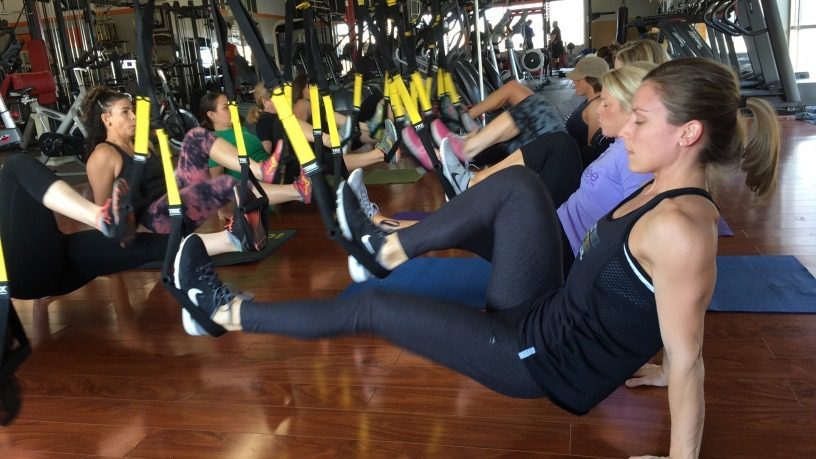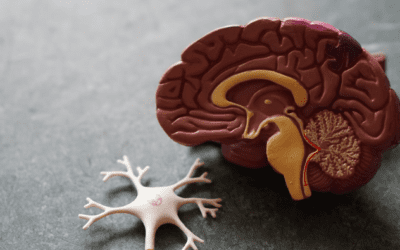Your metabolism slows down with age! What causes the slowdown… and how can you keep your metabolism strong for years to come!
Many people notice that it feels harder to maintain or lose weight as they get older. Pants that once fit easily now feel snug, and it seems like the scale climbs faster than it used to. If you’ve ever wondered if it was inevitable that aging means your metabolism slows down, the short answer is: it might be.
But probably not for the reasons you think.

This post breaks down the real science of metabolism and aging, what factors you can control, and the small shifts that can make a big difference over time.
What’s inside…
Metabolism: What It Really Is
Your metabolism is the complex process your body uses to convert food into energy. Most of the calories you burn every day go toward keeping you alive — things like breathing, circulating blood, and cellular repair. This baseline is known as your basal metabolic rate (BMR).
Your BMR is influenced by factors like age, gender, body size, genetics, and body composition. And here’s the key: the more lean mass (muscle) you have, the more calories your body burns at rest.
Muscle vs. Fat: Why Muscle Matters
Muscle tissue is metabolically active, meaning it burns more calories than fat tissue. On average, a pound of muscle burns about 6 calories per day, while a pound of fat burns about 2. It may not sound like much, but it adds up.
Here is a simple comparison:
- 10 pounds of fat burns approximately 20 calories per day
- 10 pounds of muscle burns about 60 calories per day
Over the course of a year, that difference adds up to more than 14,000 extra calories burned — roughly 4 pounds of fat. The takeaway? Increasing your muscle mass through strength training can improve your resting metabolism over time.
The Real Reasons Your Metabolism Slows Down
While metabolism can decline with age, research shows that it remains fairly steady from your 20s through your 50s. A 2021 study published in Science revealed that our metabolism does not significantly decrease until around age 60. Even then, the reduction is gradual — less than one percent per year.
So if you’re noticing weight changes before 60, the real culprits are usually lifestyle shifts, including:
- Reduced physical activity
- Loss of muscle mass
- Changes in dietary habits or sleep quality
1. Reduced Activity
As we age, many people naturally become less active. This doesn’t just mean fewer workouts, it means less moving altogether.
Have you ever heard of NEAT? Non-exercise activity thermogenesis, these are the calories burned through everyday movements like walking, cleaning, or fidgeting — often drops significantly. This reduction in daily movement means you burn fewer calories overall, even if your workouts stay consistent.
RELATED POST: 7 Habits that Wreck Your Metabolism
2. Muscle Loss (Sarcopenia)
Starting around age 30, adults begin to lose muscle mass at a rate of 3 to 8 percent per decade. This age-related muscle loss, called sarcopenia, is one of the biggest reasons that your metabolism slows down. Since muscle burns more calories than fat, losing it slows down your overall energy expenditure.
3. Cellular Aging
The metabolic processes inside your cells do become less efficient as you age. While this is a real factor, studies show it plays a smaller role in weight changes than activity level and muscle loss. So while you cannot completely stop cellular aging, focusing on physical activity and muscle maintenance gives you the most control.
How to Support Your Metabolism at Any Age
Now for the good news. You can take action to support a healthy metabolism, regardless of your age.
1. Move More Throughout the Day
Beyond formal exercise, increasing your general activity level has a significant impact. Stand up more often, go for walks, and find hobbies that keep you physically engaged. Every bit counts.
2. Prioritize Strength Training
Lifting weights, using resistance bands, or doing bodyweight exercises twice a week can help maintain or increase muscle mass. This not only boosts metabolism but also improves strength and mobility.
3. Eat Enough Protein
Protein is essential for muscle maintenance and growth. Aim for 10 to 35 percent of your total calories from protein, or more specifically:
- 0.5 to 0.8 grams of protein per pound of body weight per day
For best results, spread your protein intake throughout the day. This improves absorption and supports muscle repair more effectively.
4. Avoid Crash Dieting
Severely restricting calories can cause your metabolism to slow even further. Focus on fueling your body with nutrient-dense foods, eating enough to support your activity level, and avoiding extreme restrictions.
5. Get Quality Sleep and Manage Stress
Poor sleep and chronic stress can negatively affect your hormones and metabolism. Prioritizing rest and managing your stress levels can help your body function more efficiently.
Bottom Line
While it is TRUE that your metabolism slows down as you age, it’s not as drastically or as early as many people think. Most of the decline in calorie burn is due to decreased activity and muscle loss, not aging itself.
The good news is that you have control over both of those factors.
By staying active, building muscle, and nourishing your body with enough protein, you can keep your metabolism strong well into midlife and beyond. Start small, stay consistent, and remember: it’s not about “speeding up” your metabolism overnight. There are no quick fixes for this, it’s truly about creating habits that help it work with you in the long run, not against you.


















